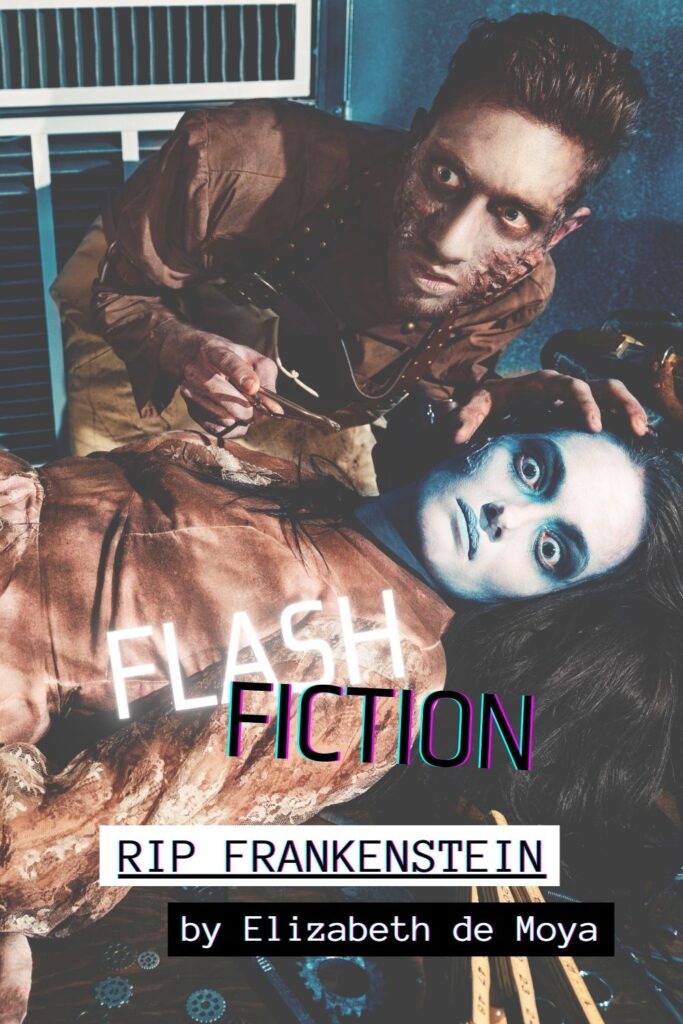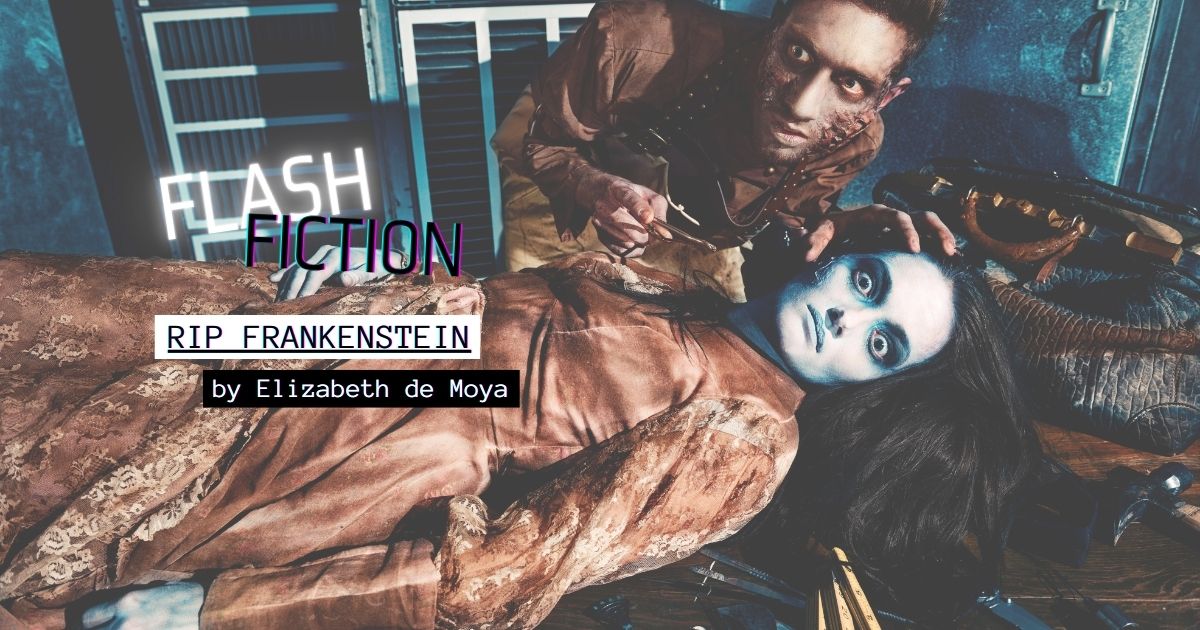“Victor, are you with us?” asked Dr. Walton from a seated position at his desk.
“What?” said Victor. He sat in a chair in front of the desk. His feet and wrists were shackled. Two armed guards stood outside the door in case of an emergency.
“Do try to pay attention, Victor,” said the doctor.
The wind beat against the trees near the windows. The sky outside was overcast and grey.
“What year is this?” asked the doctor.
“It’s 1818. We are aboard a ship marooned in the arctic.”
“I was telling you about Frankenstein, yes?” replied Victor.
The doctor sighed.
“No, you are not in the arctic,” he repeated himself.
“The year is 1833. And you are in a sanitarium for the criminally insane. You have been living here for 15 years.”
Victor responded with a bout of coughing.
“You have tuberculosis as well,” said Dr. Walton, handing him a handkerchief.
Victor’s chains clinked as he accepted it.
“Do you remember why you are here?” the doctor asked him.
“Yes, of course. How could I ever forget my entire family?” said Victor.
“How did they die?” asked the doctor.
“Murdered in cold blood, one by one, by Frankenstein,” replied Victor.
“No, Victor,” said the doctor.
“What do you mean?” Victor asked him.
“We have been over this many times. Frankenstein did not kill your family.”
“Yes, he did,” said Victor.
“I built a monster in my laboratory and he has been haunting me on a quest for revenge ever since.”
The sound of thunder resonated outside.
“It is not possible to reanimate a corpse you assembled out of the body parts of cadavers, Victor,” the doctor told him.
“I beg to disagree. I have firsthand evidence,” began Victor.
“Stop it,” replied the doctor.
“Your whole story is full of holes!”
“How would Frankenstein learn fluent French in less than a year?”
“And he has incredible strength as well. You built a superior man?” he pointed out.
“It doesn’t add up, Victor!”
“You are close to your deathbed. How long do you intend to cling to this delusional fantasy of yours?”
“Why did you do it?” asked the doctor.
“Frankenstein,” began Victor.
“You are Frankenstein!” yelled the doctor. “You are Victor Frankenstein!”
“No one can raise the dead, save Jesus Christ himself!”
“Cease this foolishness, for the sake of your mortal soul!”
Victor coughed into the handkerchief once more.
“Let us start from the beginning,” said Dr. Walton rifling through his notes.
“You testified that you created this Frankenstein monster during your studies at the University of Ingolstadt.”
“But during the time you allege to have done so, records indicate that you travelled home to Geneva.”
“It was during this time that you strangled your younger brother William to death.”
“And you almost got away with it,” said Dr. Walton.
“A dear friend of yours, Justine Moritz was accused of the murder. She was tried, condemned and executed.”
“She was like an adopted sister to you. Wasn’t she Victor?”
“Why didn’t you confess to your crimes?” he asked the patient.
“I dared not for fear they would think me mad,” answered Victor.
“You are mad!” Dr. Walton told him.
“You fled to Scotland. It was at this time you dug up several graves, and desecrated the earthly remains of multiple people, in order to build a woman in your laboratory, or so you claim.”
“Then you called upon a close friend of yours, Dr. Henry Clerval,” the doctor continued.
“You entered his home and strangled him to death with a rope.”
“After this you went to the river to look for a boat to dispose of the body.”
“That is where the town constable caught up with you.”
“I encountered Frankenstein on that evening. He vowed to avenge himself if I dared to get married,” Victor corrected him.
“After falling ill, you were acquitted of murder,” continued Dr. Walton.
“Returning to Geneva, you made plans to wed your fiancé, Elizabeth,” he stated.
“But one night you fell into a rage. You snuck into Elizabeth’s room during the dead of night and murdered her the same way you killed your brother and Dr. Clerval. You returned home and murdered your father as he slept.”
“Then you packed your belongings and attempted to flee north.”
“You left early before sunrise. But the gendarmerie arrested you as you waited at the coach stop.”
“Does any of this sound familiar? asked the doctor.
“I remember traveling north. I chased Frankenstein across the arctic tundra by dog sled,” said Victor.
“Then the ice parted and I lost him.”
“I thank God that I encountered your ship when I did,” said Victor.
He coughed.
“Why do you trouble me with these things?” he asked.
“We want to understand, Victor. We want to know why you did what you did,” said the doctor.
“Frankenstein returned to me once more last night,” began Victor.
“Oh really? And what did he say this time?” the doctor asked him.
“He told me I am dying,” said Victor.
“He said now that I am dead, he can finally end his horrible revenge.”
“He intends to travel northward where he can rest in peace at last.”
“Then he leapt out the window, and disappeared through the snow and pack ice.”
“That is convenient,” said Dr. Walton.
“Captain, after I am dead and gone, will you tell the world about Frankenstein, so that I might be remembered?” Victor asked.
“Yes, in a way,” said the doctor thinking of the paper he intended to write.
He made a sound of disgust.
“I had hoped that now that you are close to the end, perhaps the remorse and guilt would be too much for you to bear, and that you would confess.”
“I now see that you have no redeeming qualities.”
“Perhaps some people are truly evil.”
“Orderlies!” he called out.
They opened the door.
“We are through here. Take this man back to his cell,” he ordered them.
<<<<<<<<<<<<>>>>>>>>>>>>

Elizabeth de Moya lives near San Diego, CA. She volunteers for the birds, and she works at the zoo. She is going back to school to study pre veterinary medicine. She has a BA in Linguistics from UC Berkeley.
